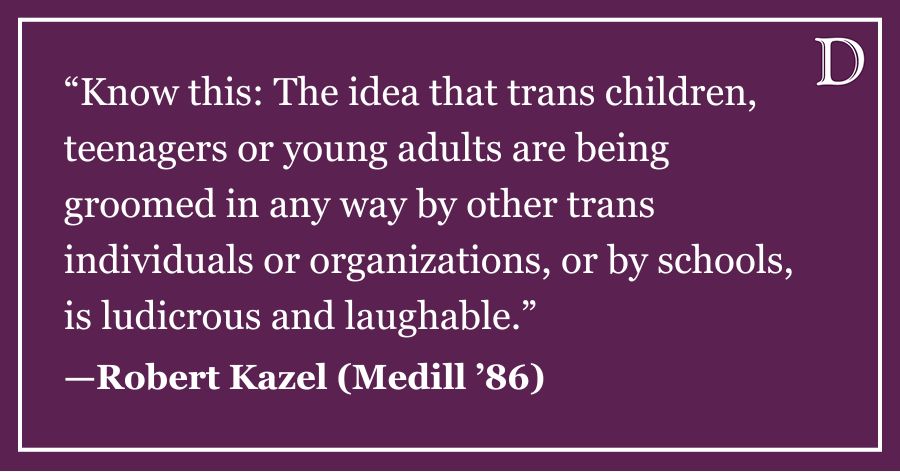With reading week and finals nearly upon us, the end of Fall Quarter is nigh. Before you know it, you’ll be trudging through snow and waking up for class in near-darkness. That’s the bad news. The good news is that early January is also a time to make decisions about studying abroad next year. You can still dream of Barcelona or Beijing, of Quito or Cairo. Options for NU students abound.
Although I won’t be leaving South America anytime soon, almost all of my peers will be. This has prompted some reflection on my first few months here and on studying abroad more generally.
Firstly, I strongly recommend that you do it, that you go to a country where they don’t speak English and that you go for at least a quarter, but preferably for a year.
Although leaving your friends is difficult, and Evanston is worth missing, you’ll still have, at the very least, one year left at NU. Plus, since you’ll probably spend your whole adult life in the US, you may never have as much flexibility or freedom as you do now. Think back to any traveling you’ve done with your parents, and I bet you’ll agree.
As much as I enjoyed visiting England and as often as I dream of one day checking out the Australian Outback, the Anglophone world is culturally similar enough that I doubt that a junior year abroad there would truly broaden one’s horizons or open one up to interesting cultural experiences or knowledge that isn’t already available. Maybe you want to study Orwell or Keynes even more deeply. Maybe you’ve been jonesin’ for some vegemite. But you can do both here without much trouble.
Which brings me to the language point. Whatever language or other cultures you’ve studied, maintaining a lifelong interest in some other country’s language allows you to see more of the world more authentically. You can travel further and wider than you otherwise could have, which makes you feel like more of an adult. For as long as I can remember, my peers in high school and college have casually referred to their lives and surroundings as “bubbles.” Well, here’s a way to pierce it.
When you achieve fluency in another language you give yourself opportunities for leisure that’s more leisurely because you’re not nervously clutching your dictionary the whole time. You open up professional opportunities in foreign countries where American skills and expertise are in demand. And you make it easier to forge relationships with fellow Americans who are members of one of our various diasporas.
Eugene Matthews, a Harvard-educated lawyer who spoke both Japanese and Vietnamese, enjoyed a very successful career as a businessman in Vietnam in the 1990s after Bill Clinton lifted the trade embargo. He helped broker an $18 million deal to import dairy cattle (providing the then-rare commodity of fresh milk) and facilitated the arrival of the credit card. This might not have been possible without his original linguistic and cultural passion for the Orient.
But fluency takes time, and unless you have an extensive background, achieving it will probably take a whole school year.
And what to do once you get there is just as important.
Years ago, the Onion published an article titled “Semester Abroad Spent Drinking With Other American Students.” It’s only funny because we probably all know people for whom that’s true. And although it can be really fun to hang out with other Americans whilst abroad, meeting people from the country you’re in is probably the most rewarding part of studying abroad. Their language, attitudes, habits and cuisine (whether or not you approve) will define your experience. My Argentine “parents,” my language partner (she speaks to me in English, I speak to her in Spanish), and even the little kids I tutor in English have helped me tremendously. In a similar vein, taking classes with natives at local universities is also key. In August, I was not at a level where this was possible, but I am excited for next semester when I will be able to.
You’ll need a sense of adventure to go, and a lot of patience to acclimate yourself, but I can assure you that studying abroad is worth it.
Michael Kurtz is a Weinberg junior. He can be reached at [email protected]













